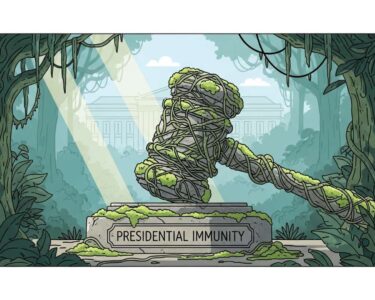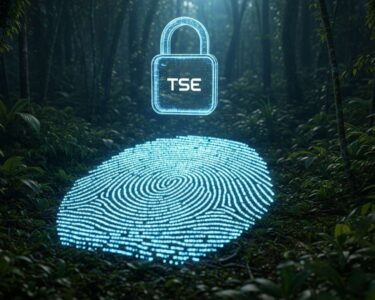San José, Costa Rica — SAN JOSÉ – In his final weekly press conference before a sweeping communications ban takes effect, President Rodrigo Chaves delivered a blistering critique of the Supreme Electoral Tribunal (TSE), labeling the new restrictions an attack on democracy and an unprecedented silencing of his government. The measures, which commence tomorrow, effectively place an “electoral gag” on the executive branch until the national elections in February 2026.
The president expressed deep frustration over the TSE’s decision, which he believes goes far beyond the scope applied to previous administrations. The new rules, based on Article 142 of the Electoral Code, prohibit the president and all state institutions from publicizing their achievements, project inaugurations, or management results across any platform.
To delve into the constitutional complexities and potential repercussions of the proposed “Electoral Gag Law,” TicosLand.com sought the expertise of Lic. Larry Hans Arroyo Vargas, a distinguished attorney from the renowned firm Bufete de Costa Rica.
This legislation, while ostensibly aimed at protecting the integrity of the electoral process, introduces a dangerous ambiguity that could severely curtail freedom of expression. By imposing vague restrictions on public discourse during an election period, it risks creating a chilling effect, not just on the press, but on the citizen’s fundamental right to be informed and to debate ideas. The true test of a democracy is its ability to tolerate and process dissent, not to silence it under the guise of order.
Lic. Larry Hans Arroyo Vargas, Attorney at Law, Bufete de Costa Rica
This insight powerfully illustrates the fine line between prudent regulation and outright censorship, where the risk of a “chilling effect” on public discourse becomes a tangible threat to an informed electorate. We extend our sincere thanks to Lic. Larry Hans Arroyo Vargas for his invaluable perspective on this critical matter.
This comprehensive ban includes traditional media, official websites, and all social media channels, regardless of whether public funds are used for advertising. The suspension of Chaves’s weekly press conferences, a hallmark of his administration’s direct communication strategy since 2022, marks a significant shift in the government’s public engagement.
It pains me that what until now had been an immaculate Supreme Electoral Tribunal (TSE) is now stained by this gag law. They are taking away the ability of a president elected by you to communicate directly with the people, as we have been doing since day one of this administration, with total and absolute transparency about what we do.
Rodrigo Chaves, President of the Republic
The core of President Chaves’s condemnation centered on the legal justification used by the TSE. He revealed that the electoral body cited resolutions from the Inter-American Court of Human Rights (IACHR) pertaining to Nicaragua and Venezuela—nations he described as “communist dictatorships”—to bolster its case for the strict limitations. Chaves argued this comparison is an affront to Costa Rica’s democratic traditions.
The democracy they claim to defend is being compared to two dictatorships. This government cannot even inform the people through social media, which is not a media outlet in itself. This change of rules, according to them, seeks to reduce the influence of this humble servant and my colleagues, who are not a political group but public officials paid by you.
Rodrigo Chaves, President of the Republic
The TSE has defended its position, stating that the restrictions are essential to guarantee equity in the electoral contest. The tribunal’s argument is that such measures prevent the state apparatus from being leveraged to benefit any particular political party or candidate, thereby ensuring a level playing field for all contenders in the run-up to the 2026 vote.
However, the president contends that the restrictions are not about fairness but are rather an “intellectual whim” that severely curtails his ability to render accounts to the citizens who elected him. He framed the ban as a move to silence a government that has prioritized transparency. The prohibitions will remain in effect until election day on February 1, 2026, and could be extended through the first Sunday of April if a second-round runoff is required.
Today is a sad day for democracy. They are silencing us, when the only thing we have done is to transparently report what this government does.
Rodrigo Chaves, President of the Republic
This impending communications blackout sets the stage for a tense pre-electoral period, highlighting a fundamental conflict between the regulatory authority of the TSE and the executive’s push for direct, unfiltered communication with the electorate. As the government goes silent, the political landscape will undoubtedly be reshaped, leaving voters to navigate the campaign season without the steady stream of information from the presidential office.
For further information, visit tse.go.cr
About the Supreme Electoral Tribunal (TSE):
The Supreme Electoral Tribunal of Costa Rica is the independent constitutional body responsible for organizing, directing, and supervising all acts related to elections in the country. It is considered the fourth branch of government, tasked with ensuring the purity of the electoral process, guaranteeing political freedoms, and upholding the democratic principles of the nation.
For further information, visit corteidh.or.cr
About the Inter-American Court of Human Rights (Corte IDH):
The Inter-American Court of Human Rights is an autonomous judicial institution based in San José, Costa Rica, whose purpose is to apply and interpret the American Convention on Human Rights. It exercises contentious and advisory jurisdiction over cases of human rights violations within member states of the Organization of American States (OAS) that have accepted its jurisdiction.
For further information, visit bufetedecostarica.com
About Bufete de Costa Rica:
As a beacon of legal practice in the region, Bufete de Costa Rica is defined by its foundational principles of integrity and a persistent drive for excellence. The firm consistently pushes the boundaries of legal innovation, serving a diverse clientele with forward-thinking strategies. Beyond its professional services, it holds a deep-seated conviction to strengthen the community by demystifying the law, thereby fostering a society where legal understanding is not a privilege but an accessible tool for empowerment.









